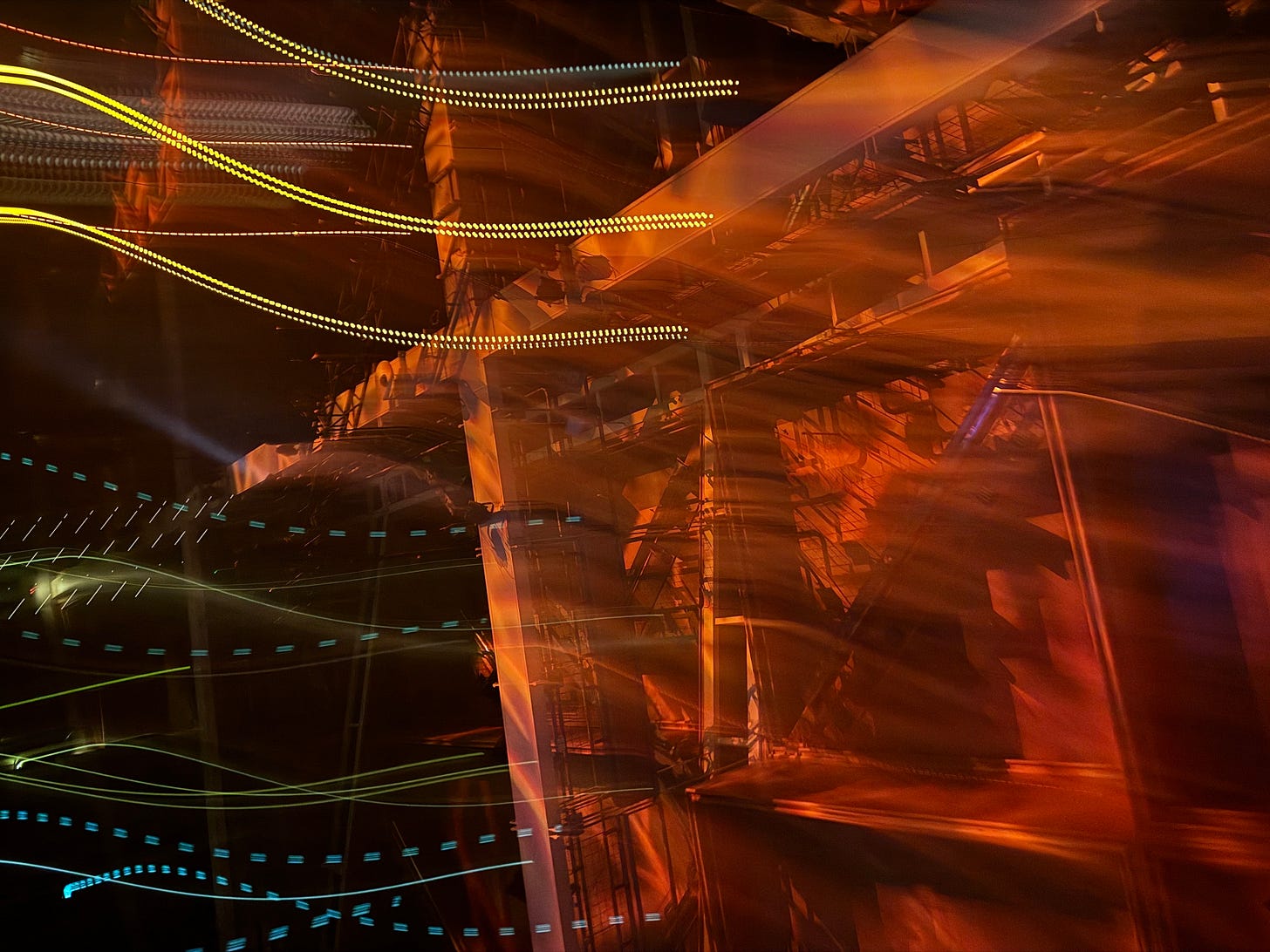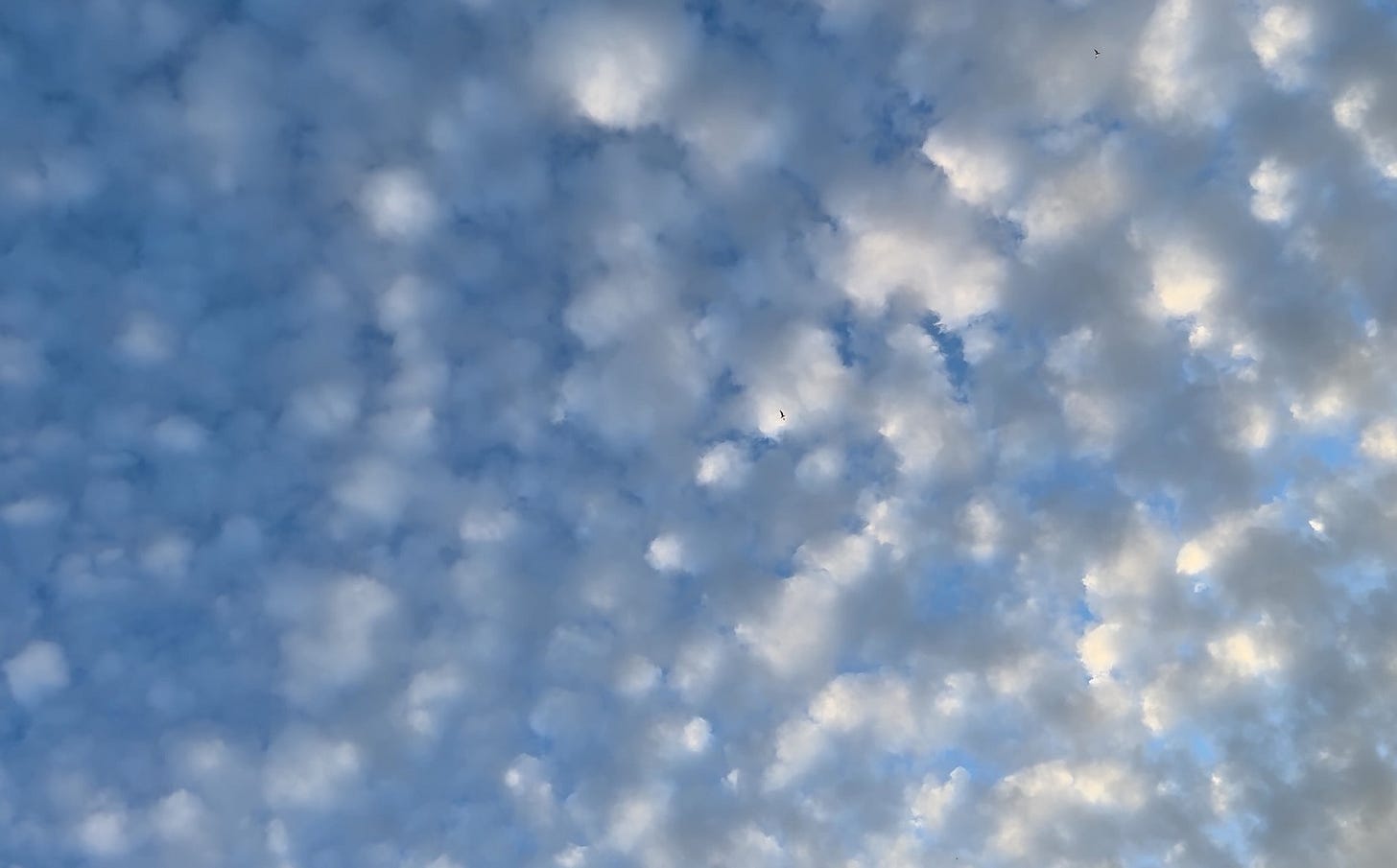It is the beginning of a new month; they are trickling in, left and right: the reading lists, the posts, the recaps, the takes, the breaks, the ego, the id!1 Welcome to October’s roundup season, the 10th duodecannual2 of 2024. We love it!
This month, I’m joining in, doing my best not to dwell on tomorrow’s unknowability. To cope, I bought 10 books at the Book Exchange in Amsterdam and 1 sesame bun from the Chinees Afhaalcentrum “Oosten”.
I am a non-linear reader. I start many books, finish a few, return to passages, re-start, re-read, forget, lose track, skip around. My memory is spatial and emotional. I remember books by where I put them in the apartment, associate sentences with where they lie on the page, and recall ideas by where they sit in the book. I am a terrible notetaker but I do write in books, mostly to acknowledge a beautiful, insightful, or disagreeable phrase. I rarely return to these annotations, though they are sometimes useful when I’m trying to write or reference something. I retain a kind of emotional resonance with a passage, chapter, or line, associated with what the annotations look like and where they sit on a page. This makes it difficult for me to read ePubs/kindle or listen to an audiobook, the lack of physicality dismembering my spatial memory. I read fiction across genres, but mostly realist, meta-, and science fiction. Much of my non-fiction is about writing, liminal spaces, and/or the earth/environment.
All this to say, this isn’t so much a list of what I read as it is an account of how I read, so read on? I guess?
Books I started
Orbital by Samantha Harvey - astonishing, rich, and dense, a slim, slow read about six astronauts on the ISS
Antarctica by Clare Keegan - tense, dark collection of short stories, read a third in dublin where i bought it but have not since had the strength to continue
Always Coming Home by Ursula K. Le Guin - read some of this in antarctica, but a terrible book for a kindle, and finally bought the library of america version 😬
Matrescence by Lucy Jones - so far, the only book i’ve been able to read about pregnancy; jones navigates the transitional, liminal, understudied waters of becoming a mother, lucid and deft
The Mushroom at the End of the World: On the Possibility of Life in Capitalist Ruins by Anna Lowenhaput Tsing - many have recommended, thoughtful, will be read in small bites i think
There are Rivers in the Sky by Elif Shafak 🔈 - rich storytelling interweaving 3 storylines connected through water and ancinet mesopotamia, the mid-1800s character, king arthur of the seweres and slums, is especially strong; am a bit frustrated by the scientist character
Books I finished
The Mercy of Gods by James S.A. Corey - i’m a sucker for the beginning of a space opera, another great read from Carey for when you’re in bed all day
Intermezzo by Salley Rooney - my first rooney; i mostly loved it! complex, fully realized characters and relationships (at least between the brothers); etc
Olga Dies Dreaming by Xochitl Gonzalez - fun to be back in new york, an important story to tell about puerto rico, but too on the nose, heavyhanded and predictable, a lot of exposition forced into dialogue, etc
Book I continued to read
The Odyssey (Emily Wilson translation) - i try to read at least a section each week, but the iambic pentameter gets stuck in my head and keeps me up at night
Book I stopped reading
The City & the City by China Miéville - interesting premise (two city states overlaid on one another, with a 1984-like double think required of citizens to avoid noticing the other) but the awkwardness kept pulling me out of the story, wasn’t really into the whole magical alien all-knowing overlords, am tired of the dead girl trope
Poem
Author’s Prologue by Dylan Thomas - !! “… froth flute fin and quill \ at a wood’s dancing hoof, \ by scummed, starfish sands \ with their fishwife cross…”
Article
Malfunctioning Sex Robot - Patricia Lockwood on John Updike made me pee my pants (from 2019)
I was hired as an assassin. You don’t bring in a 37-year-old woman to review John Updike in the year of our Lord 2019 unless you’re hoping to see blood on the ceiling. ‘Absolutely not,’ I said when first approached, because I knew I would try to read everything, and fail, and spend days trying to write an adequate description of his nostrils, and all I would be left with after months of standing tiptoe on the balance beam of objectivity and fair assessment would be a letter to the editor from some guy named Norbert accusing me of cutting off a great man’s dong in print. But then the editors cornered me drunk at a party, and here we are.
Situated Knowledges: The Science Question in Feminism and the Privilege of Partial Perspective - Donna Haraway takes us on a journey, ripe and laden with takes such as
Of course, my designation of this last group is probably just a reflection of a residual disciplinary chauvinism acquired from identifying with historians of science and from spending too much time with a microscope in early adulthood in a kind of disciplinary preoedipal and modernist poetic moment when cells seemed to be cells and organisms, organisms. Pace, Gertrude Stein.
Wikipedia Rabbit Hole
Sejong the Great (세종), who developed Hangul (the Korean alphabet); sparked by this article about Hangul’s use as a script for Cia-Cia, an Indonesian language with no written alphabet of its own

Reading like this, there’s often an incidental connection between some of the works; in this month, we have two sets of two.
««««««(1)»»»»»»
Haraway’s Situated Knowledge, an academic paper science-and-technology studies paper from 1988, and Harvey’s Orbital, a 2024 booker-prize shortlist about one day in the life of astronauts on the ISS, both take the satellite gaze and mold it, like play-doh, into its terrors and wonders.
Haraway:
Vision in thistechnological feast becomes unregulated gluttony; all seems not just mythically about the god trick of seeing everything from nowhere, but to have put the myth into ordinary practice. And like the god trick,this eye fucks the world to make techno-monsters. Zoe Sofoulis calls this the cannibaleye of masculinist extra-terrestrial projects for excremental second birthing.
Harvey:
Outside the earth reels away in a mass of moonglow, peeling backward as they forge towards its edgeless edge; teh tufts of cloud across the Pacific brighten the nocturnal ocean to cobalt. Now there’s Santiago on South America’s apporaching coast in a cloud-hazed burn of gold.
««««««(2)»»»»»»
Shafak’s There are Rivers in the Sky and Corey’s The Mercy of Gods both delicately center depression, despite being very different books. The former is a work of historical and literary fiction, weaving together three characters from different timelines whose lives are connected by water, ancient Mesopotamia, and mental illness. The latter is intergalactic science fiction, about a group of human geneticists whose non-Earth planet is conquered by an alien species called the Carryx. One of the scientists struggles with suicidal depression, especially when her anti-depressents run out after the humans are enslaved.
Carey’s treatment is a bit heavy-handed but in a useful way? As in, succinct and demonstrative, e.g., this passage about comparing your suffering to others:
When she’d been younger, one of her physicians had warned her against comparing her distress to other people’s. No matter what conclusion you drew, he said, you’d make a mistake. Either you saw someone else suffering, like Synnia staggering under the grief of Nöl’s execution, and decided that your own pain didn’t matter. Or you saw someone laboring under what seemed like a minor problem—Dafyd mooning after Else and Else letting him—and discounted their troubles as trivial. The first case was an excuse for self-negation, the second invited contempt.
In Shafak’s Rivers, it is King Arthur of the Sewers and Slums whose story connects most with me. Depression and mental illness touch his early life through his mother and the suicide of his first mentor, but it is the melancholy that slowly overtakes him as his genius and obsession with the Epic of Gilgamesh move him out of London slums and into high society that is totally heartbreaking. I’m about two-thirds of the way done. But see, it is an audiobook so I have no passages to quote except a single line I wrote down:
Water hardens in adverse circumstances, not unlike the human heart.
Here’s to a softer tomorrow,
Elizabeth
some reliable roundup-ers include Celine Nguyen’s personal canon and Petya K. Grady’s A Reading Life
not to be mistaken with a duodecennial


